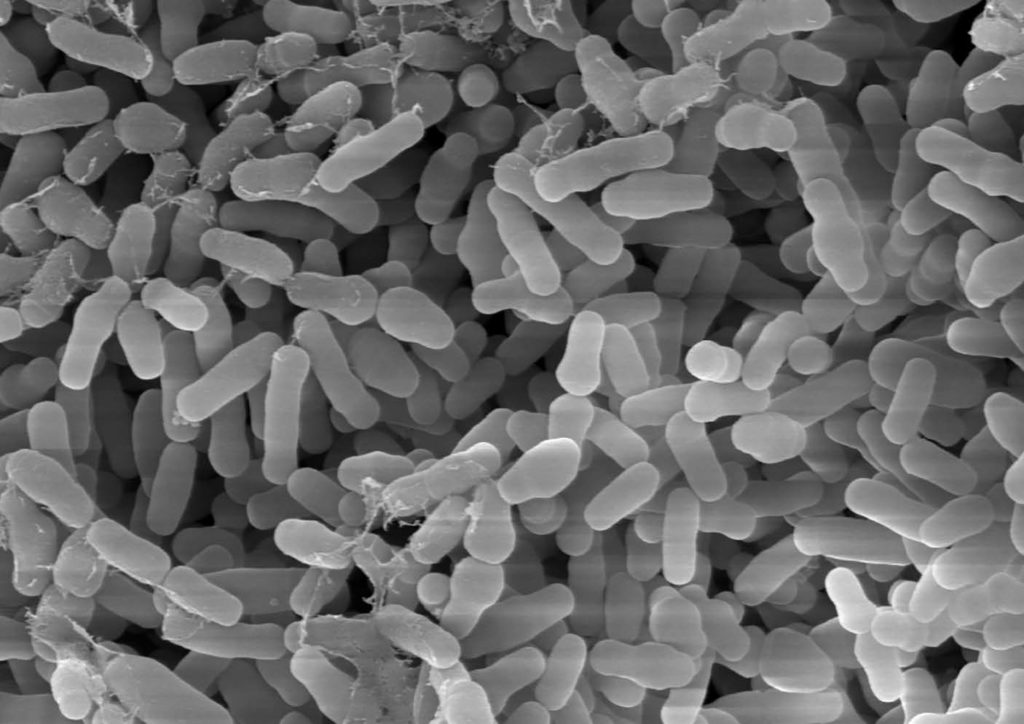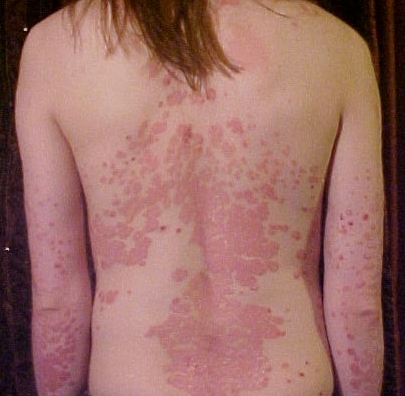10 Oct 2019 Nutrition Insight By Anni Schleicher and Laxmi Haigh
ADM has released new clinical data affirming the safety and efficacy of a blend of probiotics when used as a coadjutant therapy to alleviate symptoms in psoriasis patients. The discovery further underscores the blurring of the lines between the food and drug space, and spotlights the role probiotics can play in a holistic approach to disease. As the science investigating psoriasis has yet to deliver a cure for the disease, this clinical study marks a significant step forward to alleviating the symptoms of psoriasis, a disease that affects 2 to 5 percent of the global population.

Psoriasis is characterized by itchy, red plaques of abnormal skin. The chronic autoimmune disease varies in severity, from small, localized patches to complete body coverage. Psoriasis is believed to be the result of several factors, including an overactive immune system; however, the exact cause of psoriasis is still unknown.
“Probiotics are functional ingredients and each probiotic combination must be carefully evaluated to determine its effectiveness as either a preventative measure or an aid to therapeutic treatment, and then incorporated into a holistic approach tailored to each patient. In this context, our mixture of probiotics is extremely effective in supporting individuals with psoriasis,” Daniel Ramon Vidal, ADM Vice President of R&D for Health & Wellness, tells NutritionInsight.
The mixture of probiotics, developed by ADM Biopolis, in conjunction with Korott and Bionou, consists of two strains of bifidobacteria and one strain of lactobacillus. These bacteria are known to exert anti-inflammatory and antioxidant properties. ADM researchers had already begun gathering preliminary data highlighting the link between changes in the gut microbiome and the development of psoriasis two years ago. Building upon that research, the company formulated and researched the use of probiotics in psoriasis patients for preventing the development of the disease or increasing the effectiveness of current therapeutic treatments.

“We are excited about the results and the potential for our probiotic blend. This is an original and optimal nutritional supplement to enhance the action of pharmacological agents used in the treatment of psoriasis, as well as lowering the risk of relapse. We observed this in patients receiving the combined treatment,” says Vidal.
The lines between drugs and food, and between supplements and medications, are becoming increasingly blurred. This is particularly noticeable in the probiotics space . The rapid growth of the segment and exciting research on the importance of human microbiota have increased interest from pharma companies, and their consumer healthcare divisions in probiotic product development.
“Consumers are increasingly seeing the links between food and health as core to maintaining overall wellbeing. What we eat not only influences our immediate health, but can also affect our wellbeing for the next 10, 20 or 40 years. It is the emergence of the concept of prevention that is resulting in the line between the food and drug space becoming blurred,” says Vidal.
The study
In a randomized, double-blind, placebo-controlled clinical trial, patients with mild to moderate psoriasis being treated with corticosteroids responded to the probiotic mixture with a marked trend for reduction in the severity of skin lesions. More importantly, the study participants experienced lower rates of relapse over a six-month follow-up period compared to the placebo group. The results of this clinical study have been accepted for publication in the journal Acta Dermato-Venereologica.

“The results of this clinical trial are very conclusive, however we would like to carry out a similar study in other regions such as Asia, Latin America or the USA to confirm the efficacy of this combination of probiotics in other population groups,” Vidal explains.
Vidal adds that ADM Biopolis will continue to investigate new skin pathologies and their relationship with probiotics, both related to gut and skin microbiomes.
“To this end, we are currently conducting two additional research projects: investigations into new probiotics to aid in the treatment of pathologies related to metabolic syndrome, and the use of probiotics in supporting male and female infertility. In both cases we already have products on the market, but we want to continue to expand our knowledge base to create new solutions.”
Previous studies have identified the potential for probiotics’ wound-healing abilities, protection against UV-induced photo damage, and the alleviation of symptoms in skin diseases, not just psoriasis but also dermatitis. Earlier this week at the Anuga 2019 trade show, Polish brand Purella Superfoods showcased its range of BeRAW-branded probiotic cookies. The snacks comprise up to 10 billion probiotic bacteria from the natural strain of Bacillus coagulans GBI – 30, which stimulates the immune system, helps maintain the overall balance of intestinal microflora. The addition of prebiotic chicory fiber to the product functions to nourish and guarantee the proper development of beneficial bacterial strains and improve digestive tract function.
